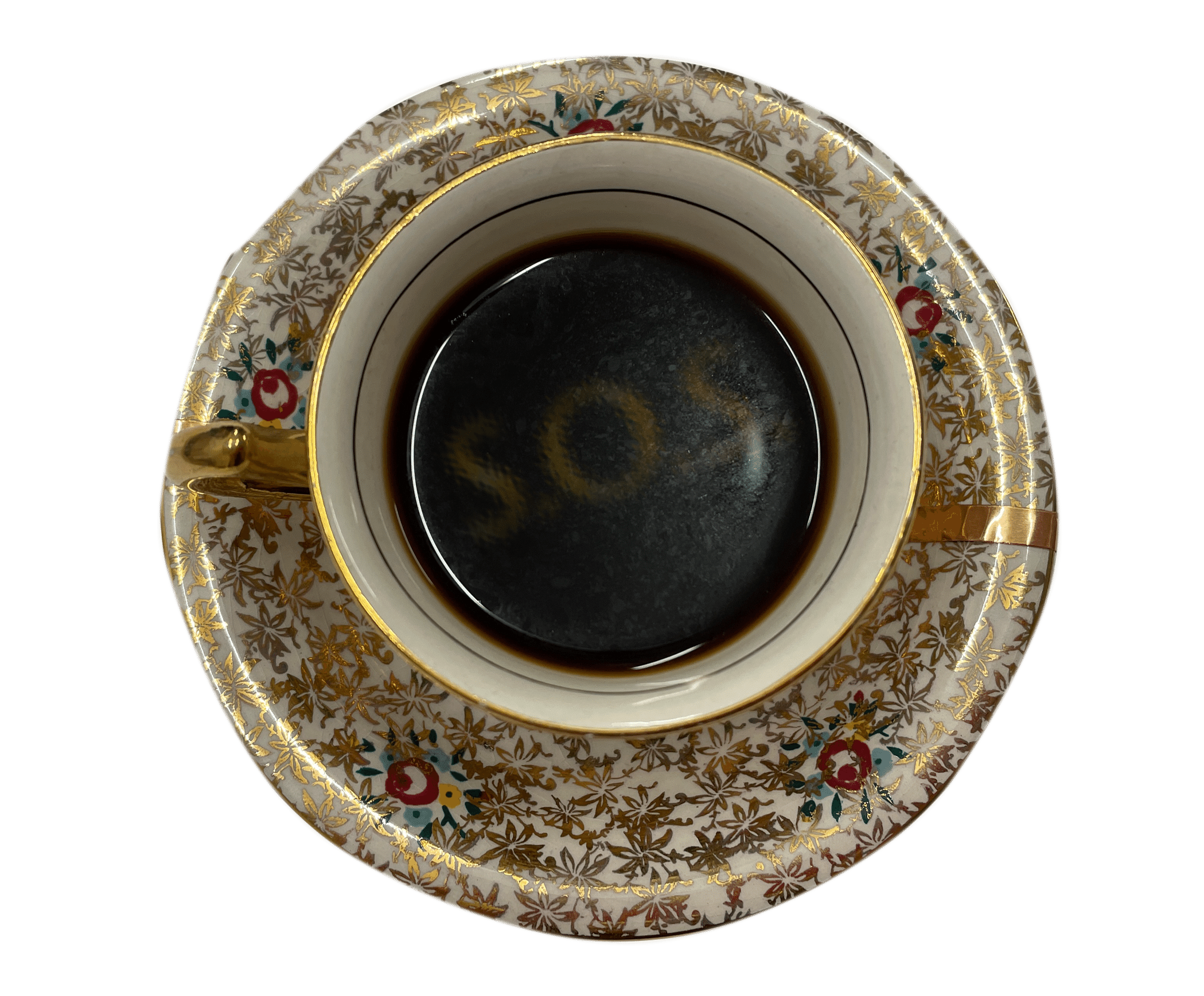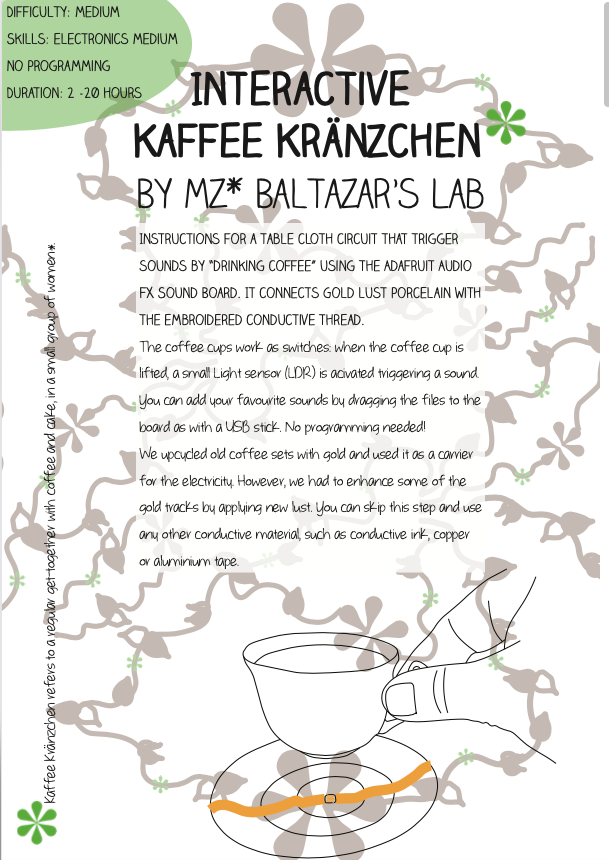*Coffee table
from the serie Salon of Open Secrets
The tablecloth pattern was designed as an electronic circuit. It was embroidered with conductive thread and is connected to the porcelain and light sensors through the conductive gold used in the lustre of the old porcelain and to the soundboards through conducive textile terminals. By "drinking," "serving" coffee, or interacting with other conductive agents (such as metal spoons), diverse sounds are triggered. These can be either simple sounds related to coffee drinking or complex sounds such as spoken words addressing the issues of ecology and colonialism in the context of coffee production and gold mining in the Global South. The interactive art installation was designed to be presented first in the form of a performance and as an exhibition object.
In the follwoing video, our latest performance at the Artistic Ceramic Bienal in Aveiro, Portugal. (October 2023)
Credits:
Performers: Patricia J. Reis, Stefanie Wuschitz, Anna-Rita Carvalho, Silvia Amado
Video: Joāo Nunes
Sound: José Lopes
Embroidery: Erika Farina
Concept: Patricia J. Reis & Stefanie Wuschitz
In this work, the legacy of gendered porcelain collecting and the different functions and meaning it created in women’s lives is explored, while also engaging with themes of art, science, and technology. The installation consists of a set of porcelain vessels and plates arranged on a circular wooden table, surrounded by a series of interconnected circuits and wires. The vessels and plates are adorned with intricate floral patterns and delicate textures, showcasing the exquisite craftsmanship and aesthetic qualities of porcelain. The use of circuits and wires in the installation serves as a metaphor for the interconnectedness of historical legacies, colonial histories, and contemporary technologies. The use of porcelain vessels and plates in the installation alludes to the history of colonialism and the global trade of luxury goods.
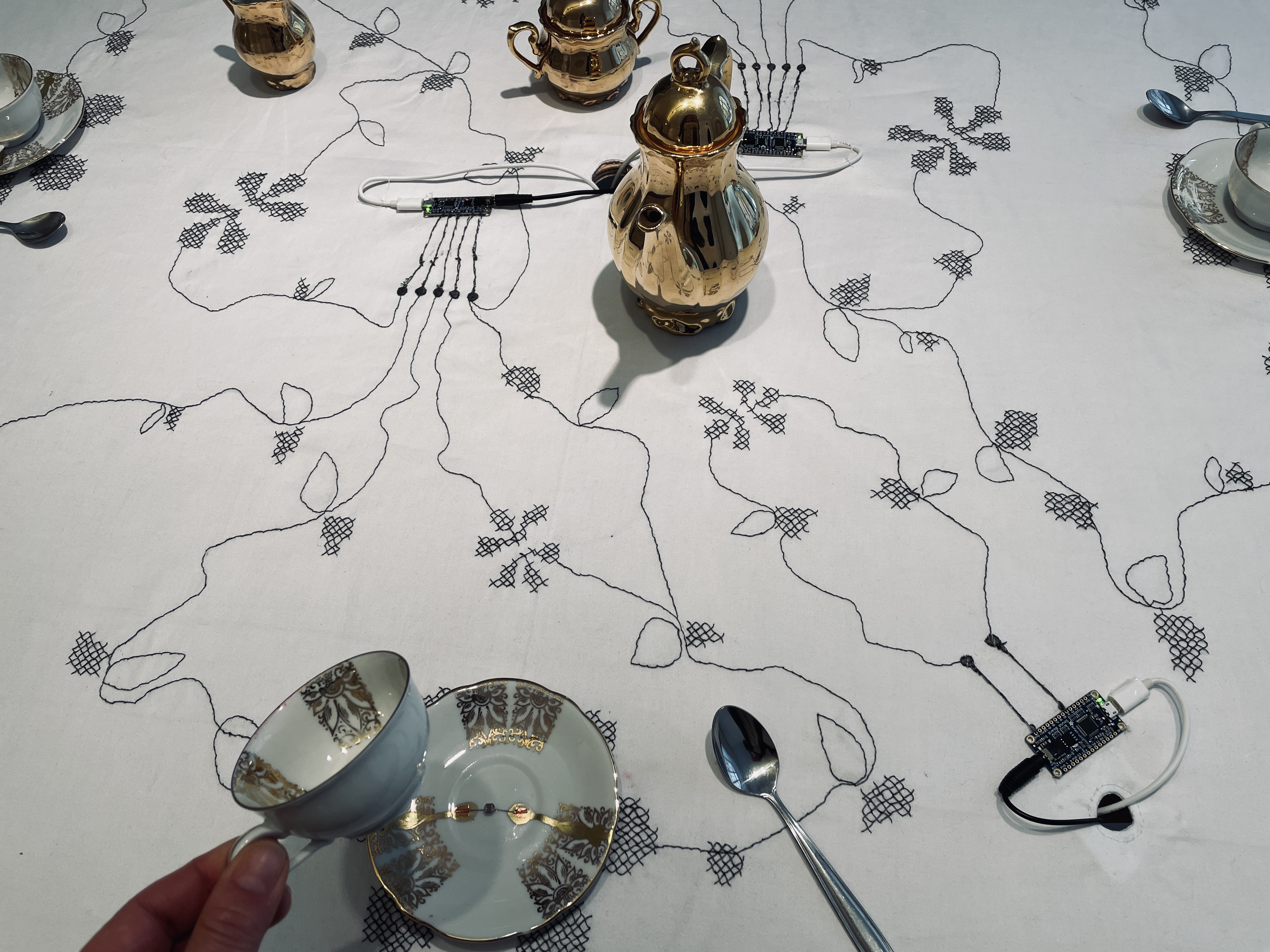
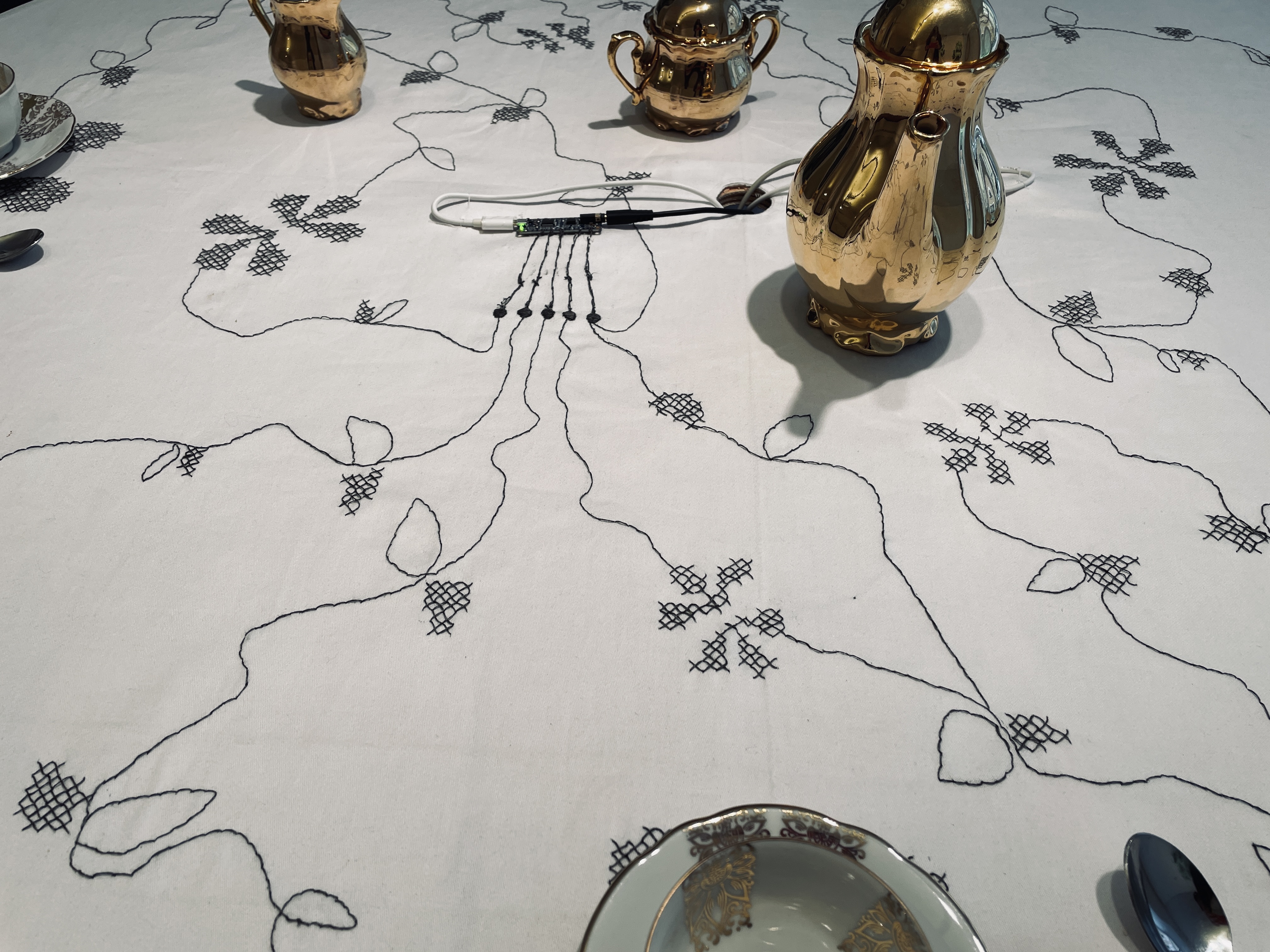
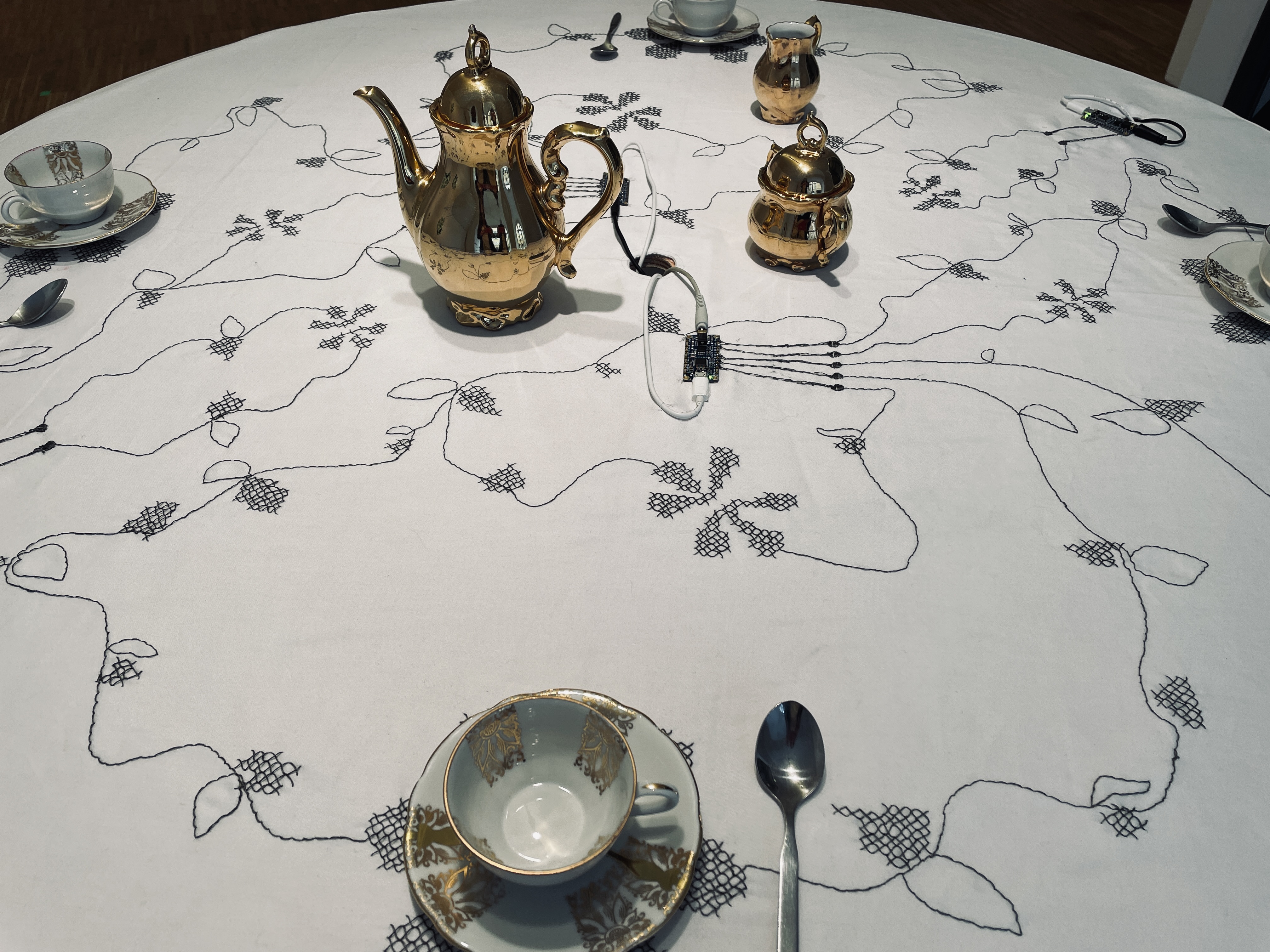

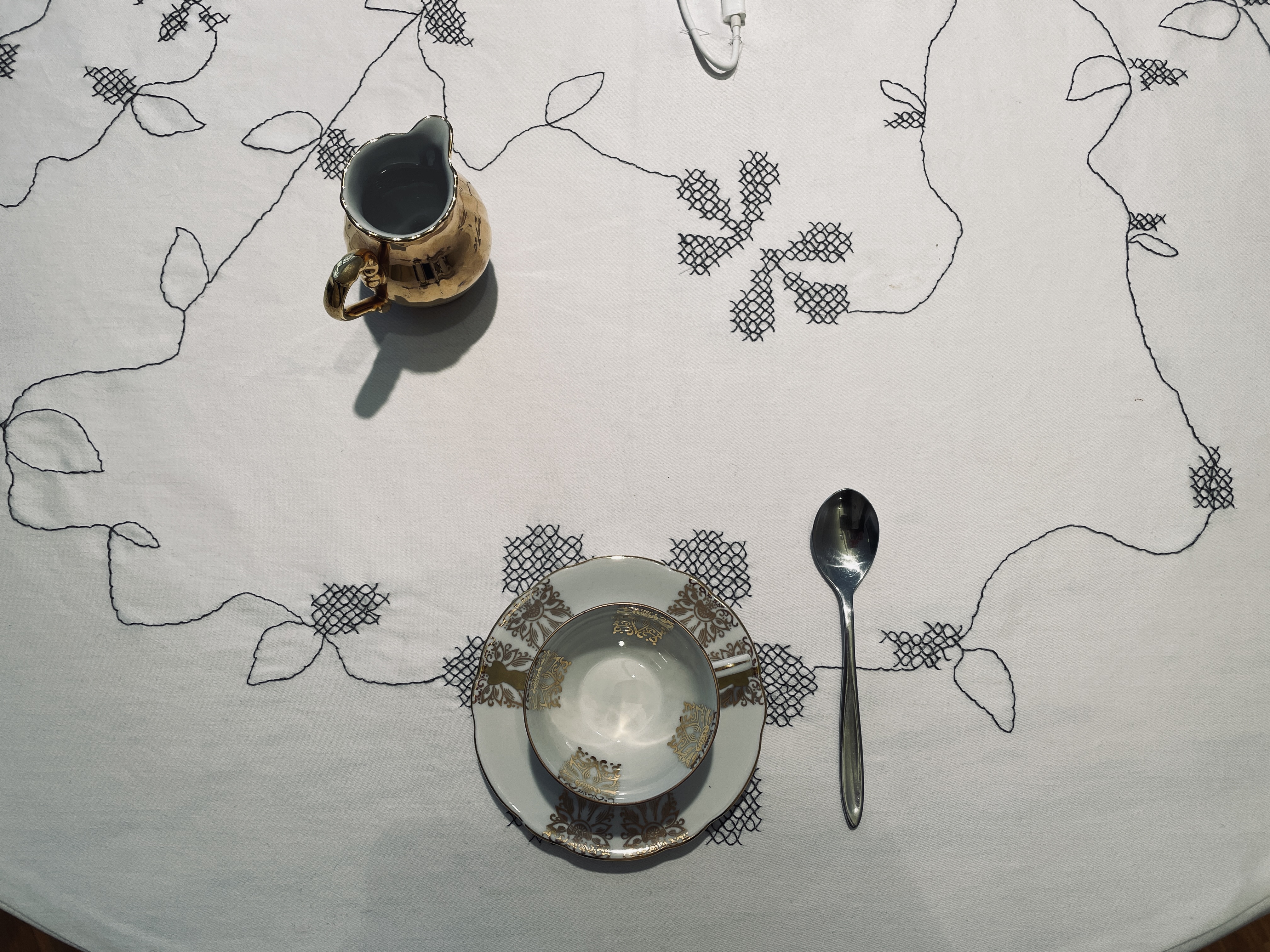
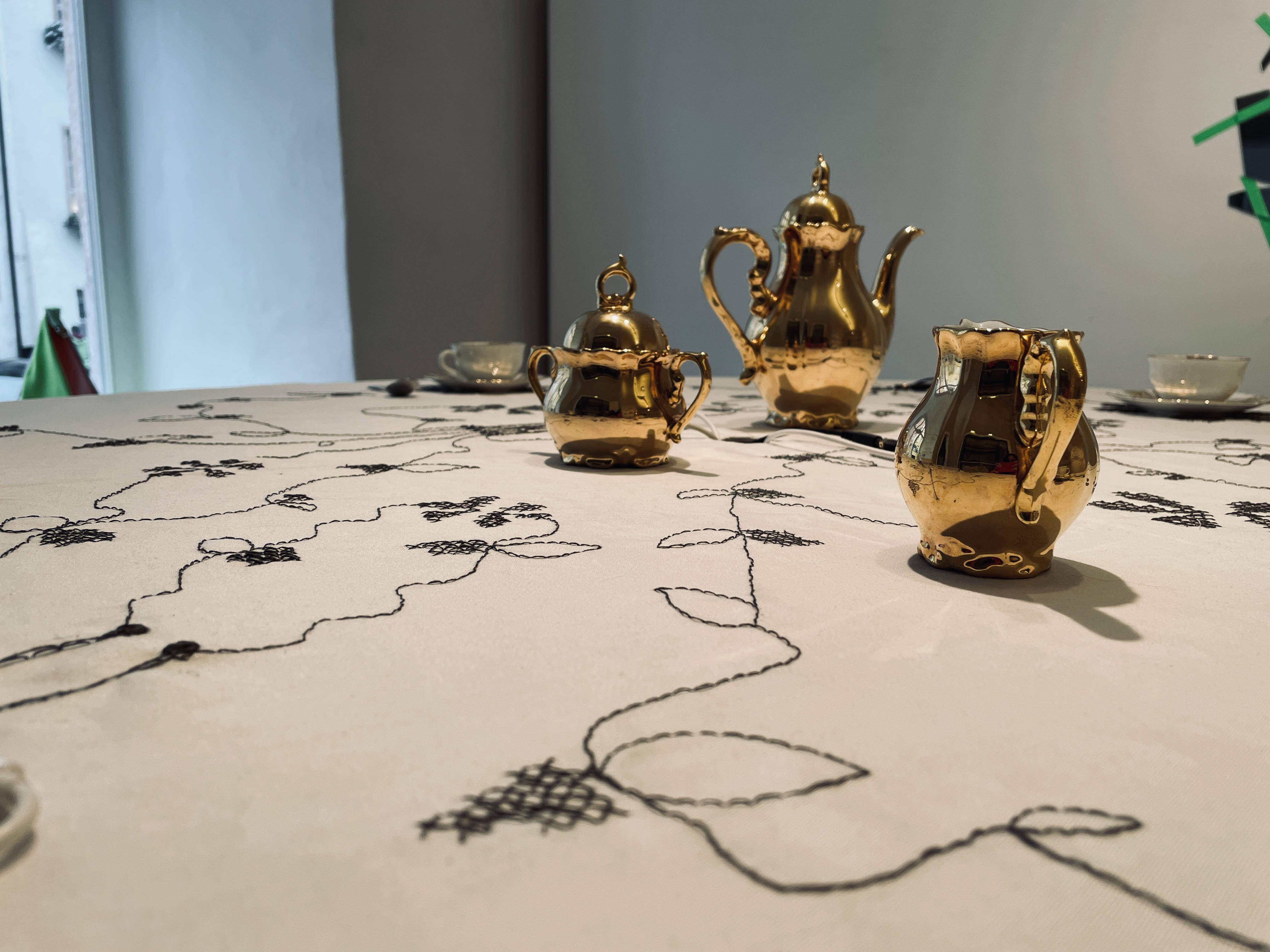
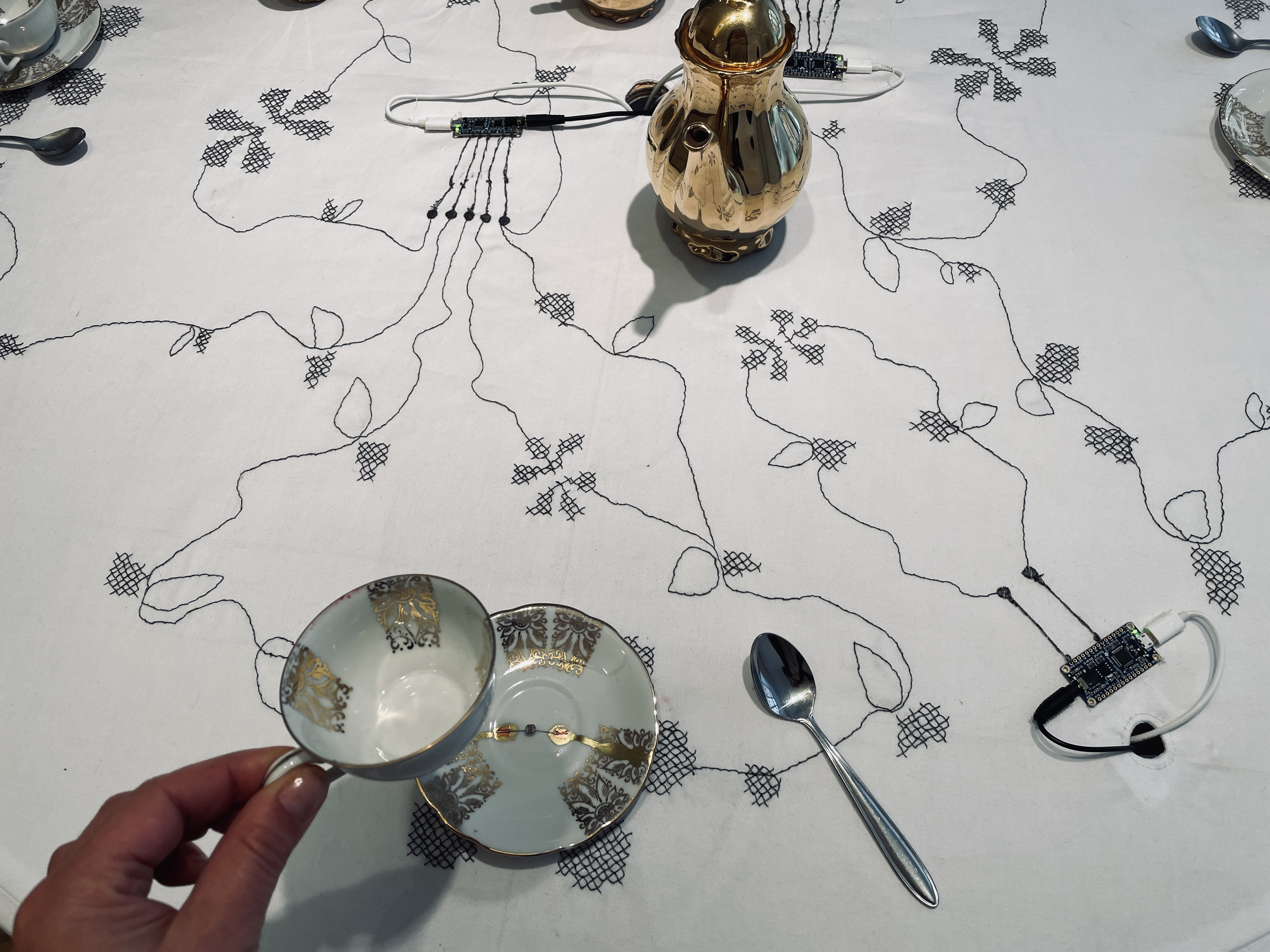
The installation represents an interactive circuit embroidered in a tablecloth with conductive textiles. The circuit uses 4 open source hardware (soundboard from Adafruit) that trigger sounds whenever a button is switched on. The buttons are triggered by old porcelain coffee cups lustred with gold. Gold is being reused as a conductive material that naturally establishes electric conductivity. The tablecloth works as an instrument/ performative tool: whenever one of the performers pores the coffee, “drinks” coffee, or adds sugar, a different sound is triggered. Sounds were collected from the natural cafe drinking environment but also from important texts that are tackling the topic of coffee, gold and porcelain as precious materials mined in the global south and brought to the global north through colonialism.
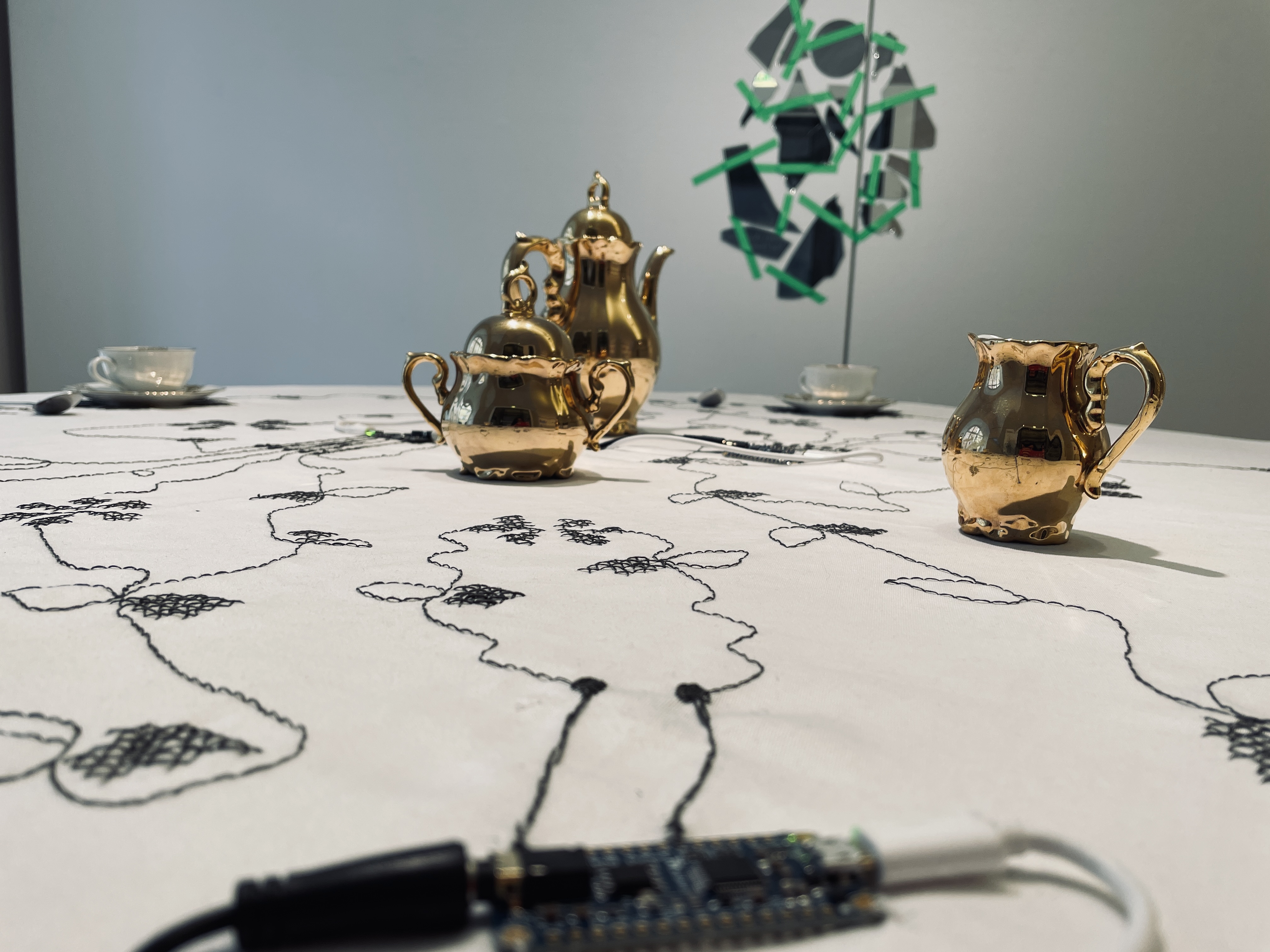
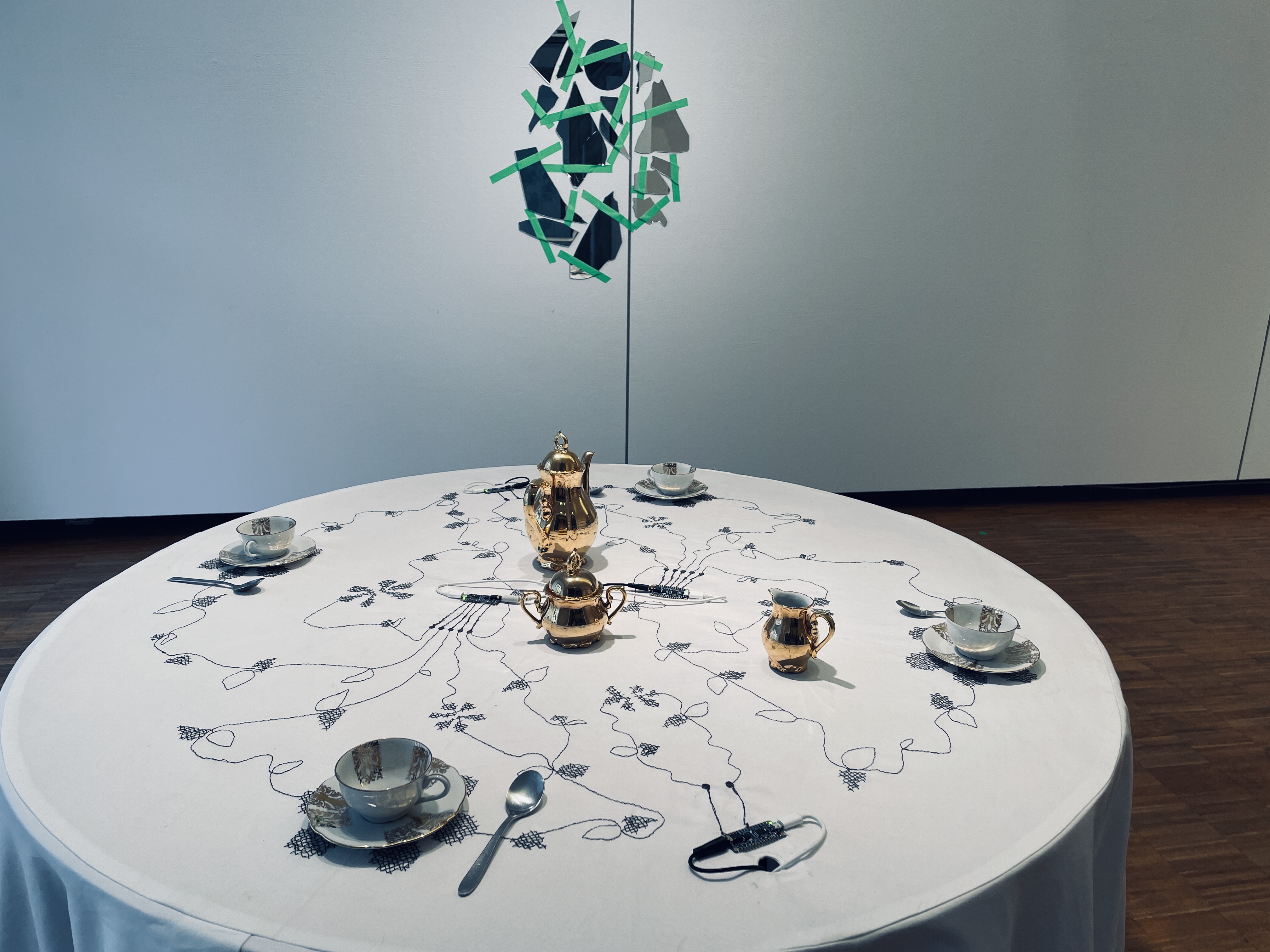
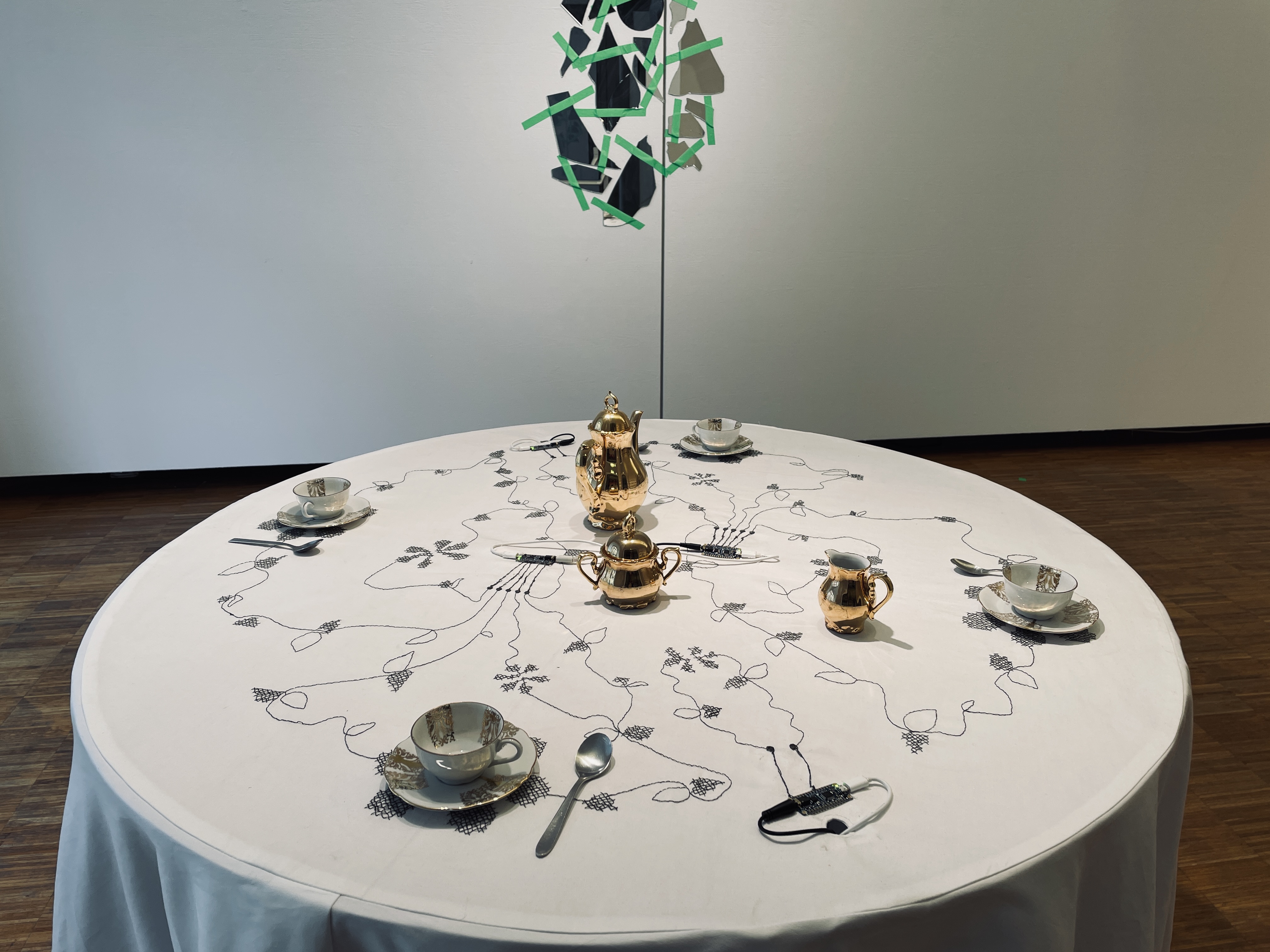
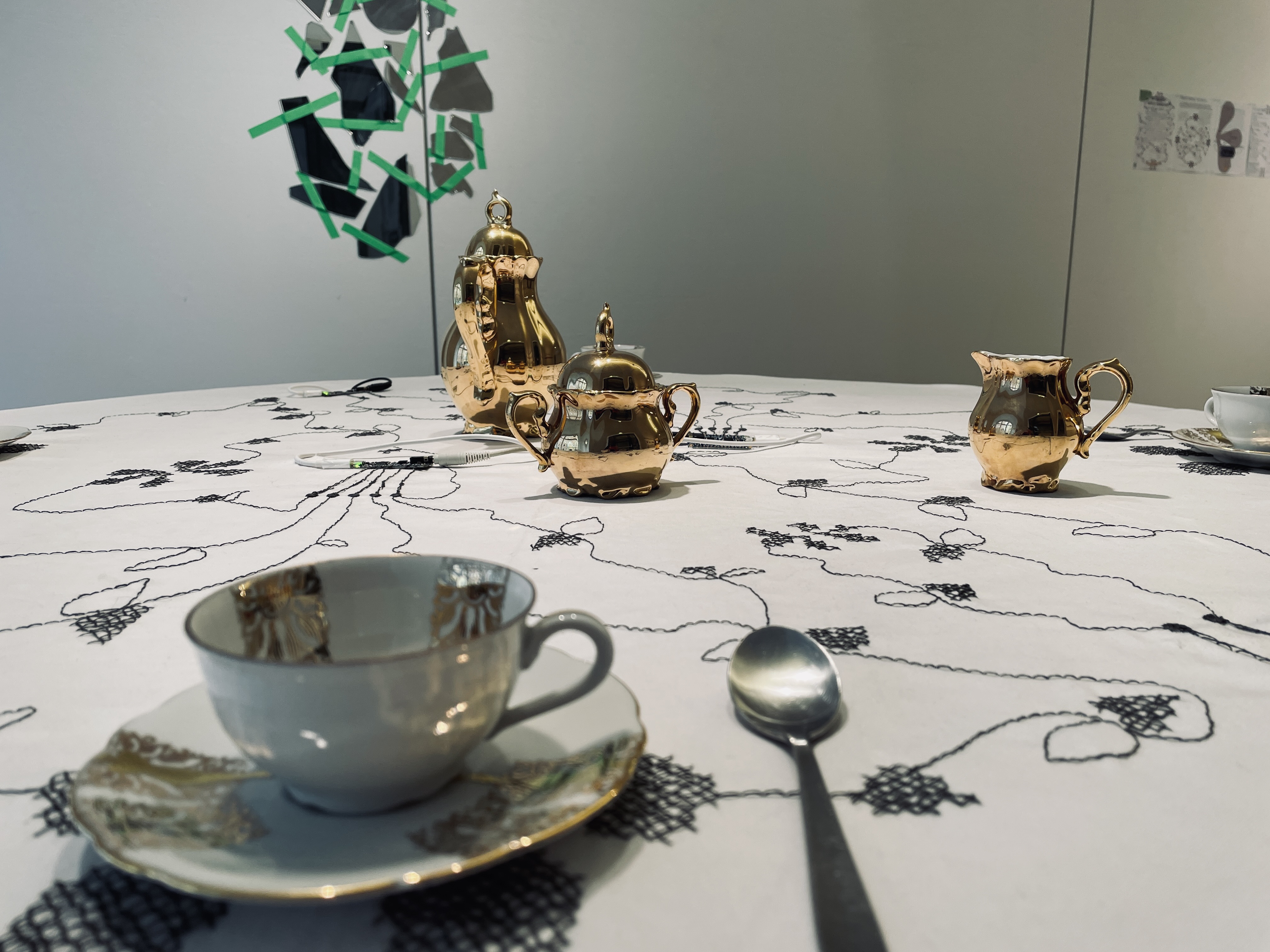
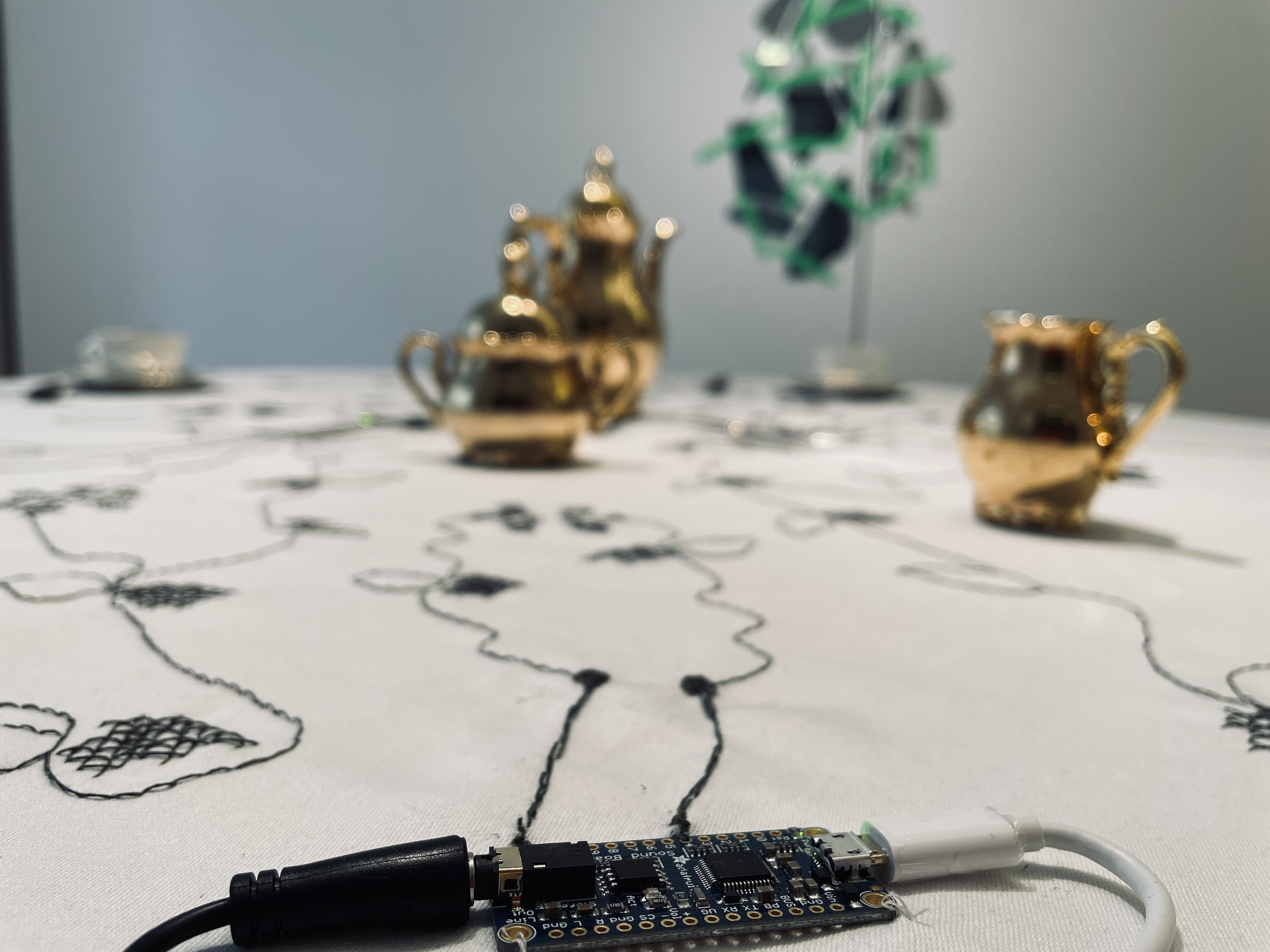
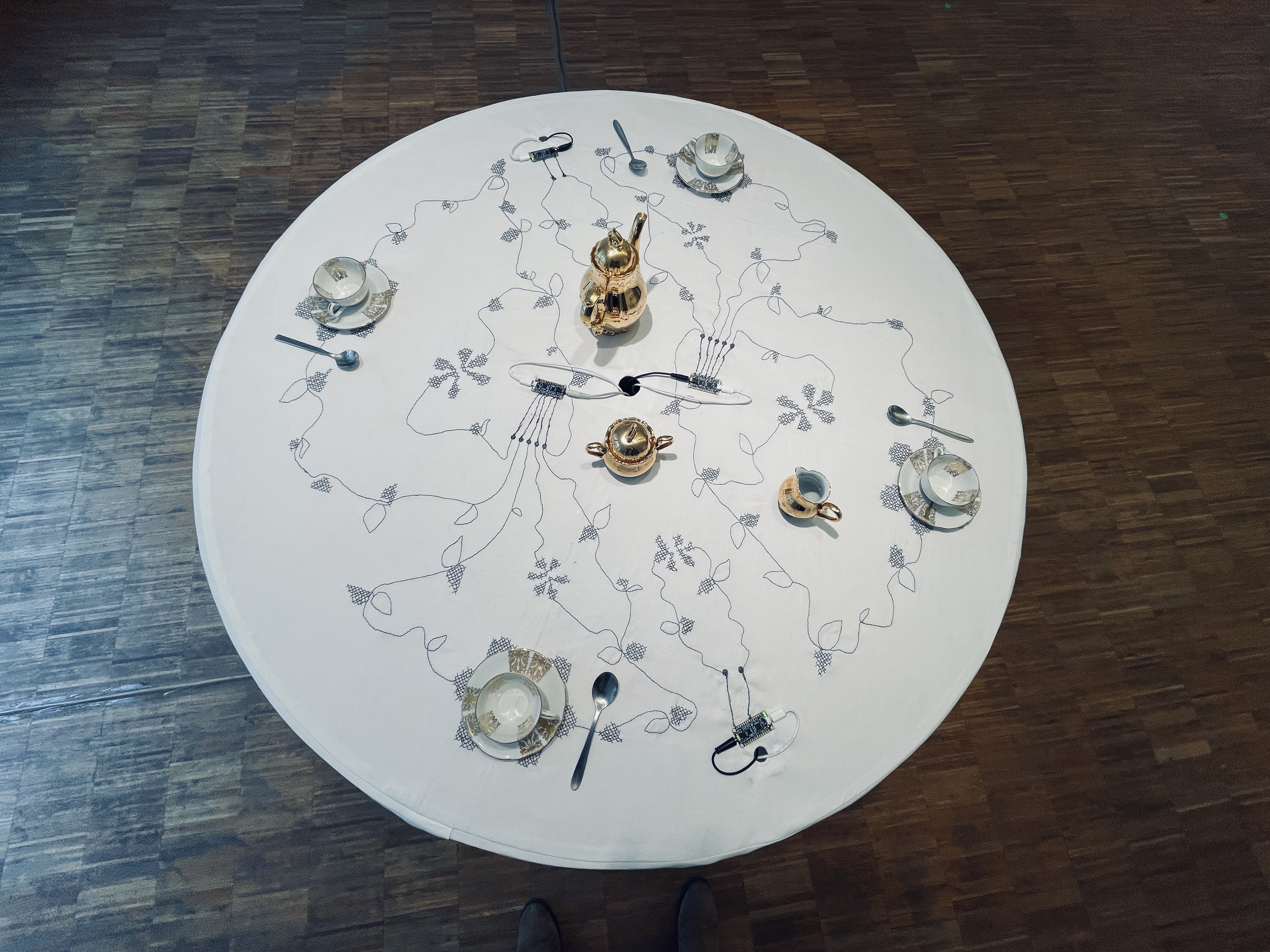
Building on that legacy, we invite the participants to rethink the women’s coffee table* gathering as a circulation of energies and potentialities that we expose through the electric circuit built with ecologically sentient methods and materials, reflecting on the colonial histories and presents of mining, import, consumption and appreciation of art and hardware.
The coffee table installation project is intricately connected to the principles of urban mining, upcycling, and new materialism. Upcycling, a form of recycling, involves repurposing discarded or waste materials into new products that have higher value and functionality. The use of conductive gold porcelain cups in the installation is a prime example of upcycling and new materialism. Gold, which is a precious metal, is usually associated with jewellery or high-value financial transactions. However, by repurposing it as a conductive material, the installation is using it in a new and innovative way, creating a unique blend of art, technology, and sustainability.
The coffee table installation project promotes urban mining by using upcycled gold porcelain cups. Urban mining recovers valuable materials from electronic waste, reducing the need for mining new raw materials and benefiting the environment by reducing environmental degradation and social exploitation.
The coffee table installation project is intricately connected to the principles of urban mining, upcycling, and new materialism. Upcycling, a form of recycling, involves repurposing discarded or waste materials into new products that have higher value and functionality. The use of conductive gold porcelain cups in the installation is a prime example of upcycling and new materialism. Gold, which is a precious metal, is usually associated with jewellery or high-value financial transactions. However, by repurposing it as a conductive material, the installation is using it in a new and innovative way, creating a unique blend of art, technology, and sustainability.
The coffee table installation project promotes urban mining by using upcycled gold porcelain cups. Urban mining recovers valuable materials from electronic waste, reducing the need for mining new raw materials and benefiting the environment by reducing environmental degradation and social exploitation.

Furthermore, the project engages with the complex historical and social dimensions of the mining of precious materials such as gold and porcelain. It enables a discussion of the colonial history of coffee, gold, and porcelain and helps to bring attention to the legacy of the global north-south divide and its impact on the exploitation of natural resources.
The installation also highlights the gendered history of porcelain collecting, which played a significant role in the lives of women of the aristocracy. The chinoiserie cabinet, a room that displayed porcelain collections, had a social function, and tea and coffee consumption played an essential role in European culture and the role of women in it. New materialism is a framework that recognizes the agency of minerals and metals in shaping human culture and challenges the view that humans are the only agents of change.
The coffee table installation project exemplifies this perspective by repurposing gold porcelain cups, acknowledging the role of gold in shaping human technology and culture. The project promotes sustainability by using upcycling and acknowledging the social and environmental impact of mineral extraction and use, creating new relationships with natural resources that are more just and sustainable. The coffee table installation project takes a decolonial perspective, acknowledging that the extraction and exploitation of natural resources have led to social and environmental injustices. The use of upcycled materials challenges the dominant narratives of economic growth and seeks to create awareness and dialogue around issues of colonialism, imperialism, and capitalism. The project includes discussions of the colonial history of coffee, gold, and porcelain, which disrupts dominant narratives that ignore violent histories of resource extraction in the Global South. This serves as a decolonial intervention that promotes critical examination of the role of colonialism and capitalism in resource exploitation.
The installation also highlights the gendered history of porcelain collecting, which played a significant role in the lives of women of the aristocracy. The chinoiserie cabinet, a room that displayed porcelain collections, had a social function, and tea and coffee consumption played an essential role in European culture and the role of women in it. New materialism is a framework that recognizes the agency of minerals and metals in shaping human culture and challenges the view that humans are the only agents of change.
The coffee table installation project exemplifies this perspective by repurposing gold porcelain cups, acknowledging the role of gold in shaping human technology and culture. The project promotes sustainability by using upcycling and acknowledging the social and environmental impact of mineral extraction and use, creating new relationships with natural resources that are more just and sustainable. The coffee table installation project takes a decolonial perspective, acknowledging that the extraction and exploitation of natural resources have led to social and environmental injustices. The use of upcycled materials challenges the dominant narratives of economic growth and seeks to create awareness and dialogue around issues of colonialism, imperialism, and capitalism. The project includes discussions of the colonial history of coffee, gold, and porcelain, which disrupts dominant narratives that ignore violent histories of resource extraction in the Global South. This serves as a decolonial intervention that promotes critical examination of the role of colonialism and capitalism in resource exploitation.
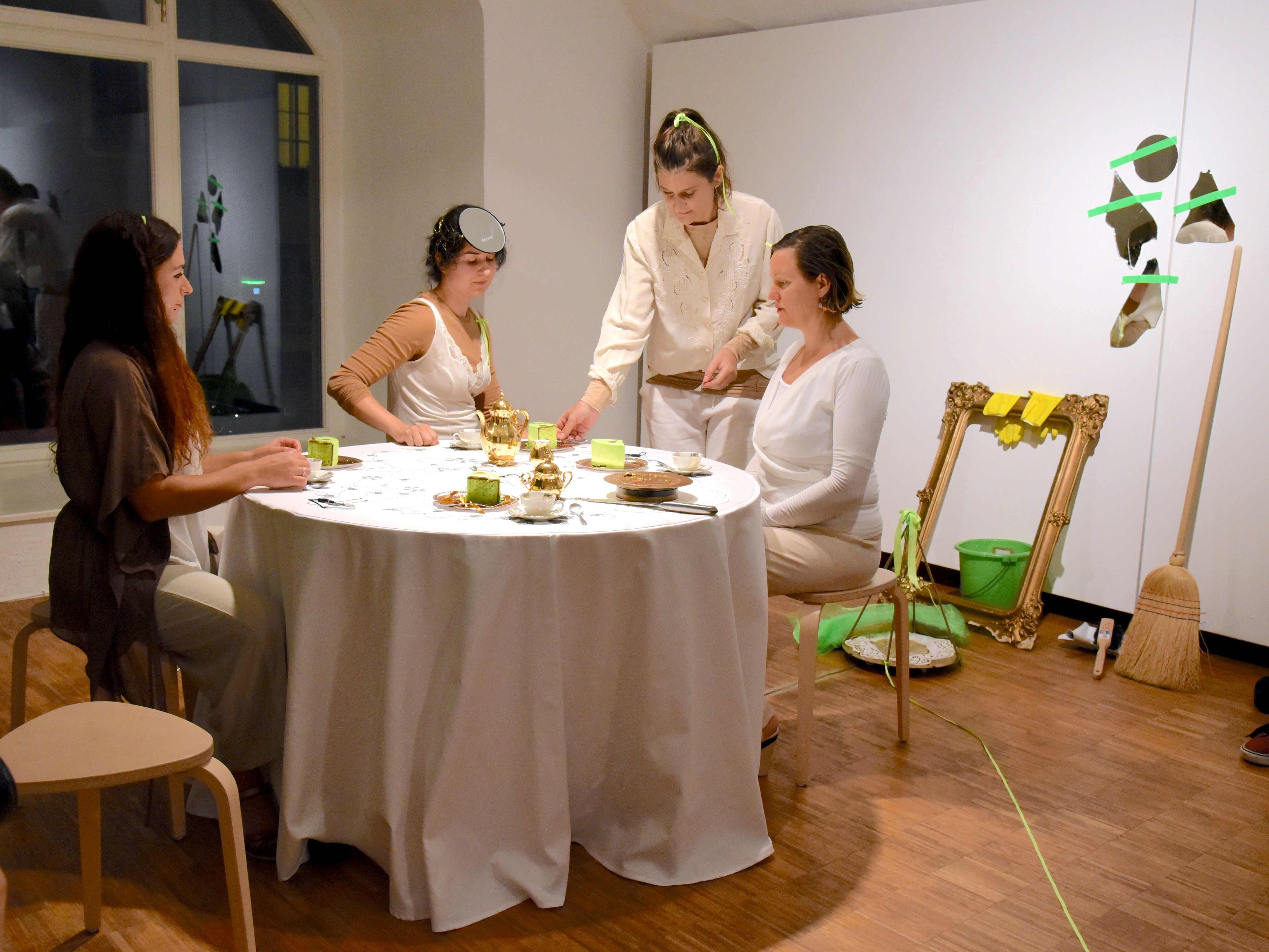
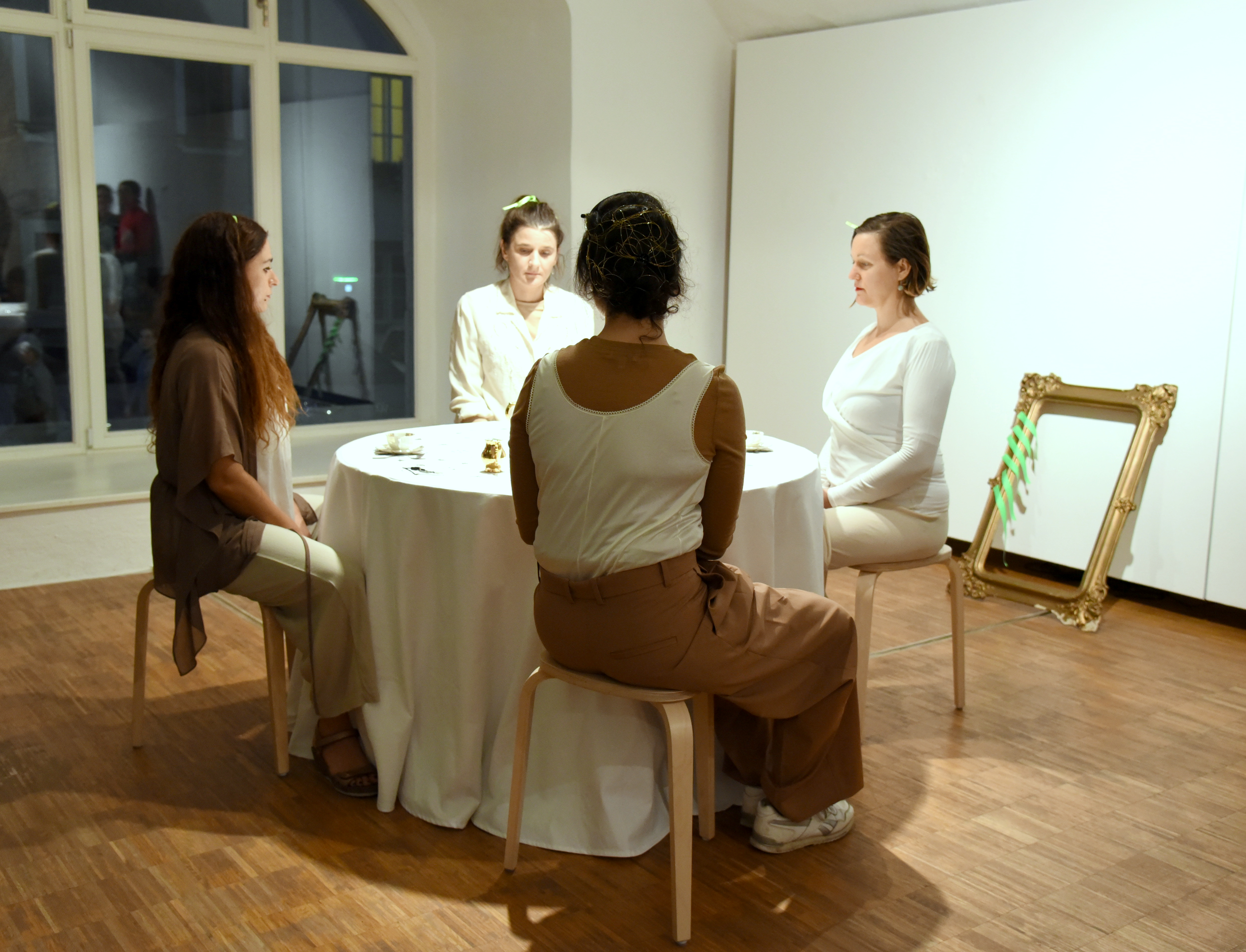
Performance at Kunstraum pro arte, Hallein, Salzburg, Austria, October 2022. Performers: Anna Watzinger, Olivia Jaques, Patrícia J. Reis, Stefanie Wuschitz. photo© Gabriele Krisch
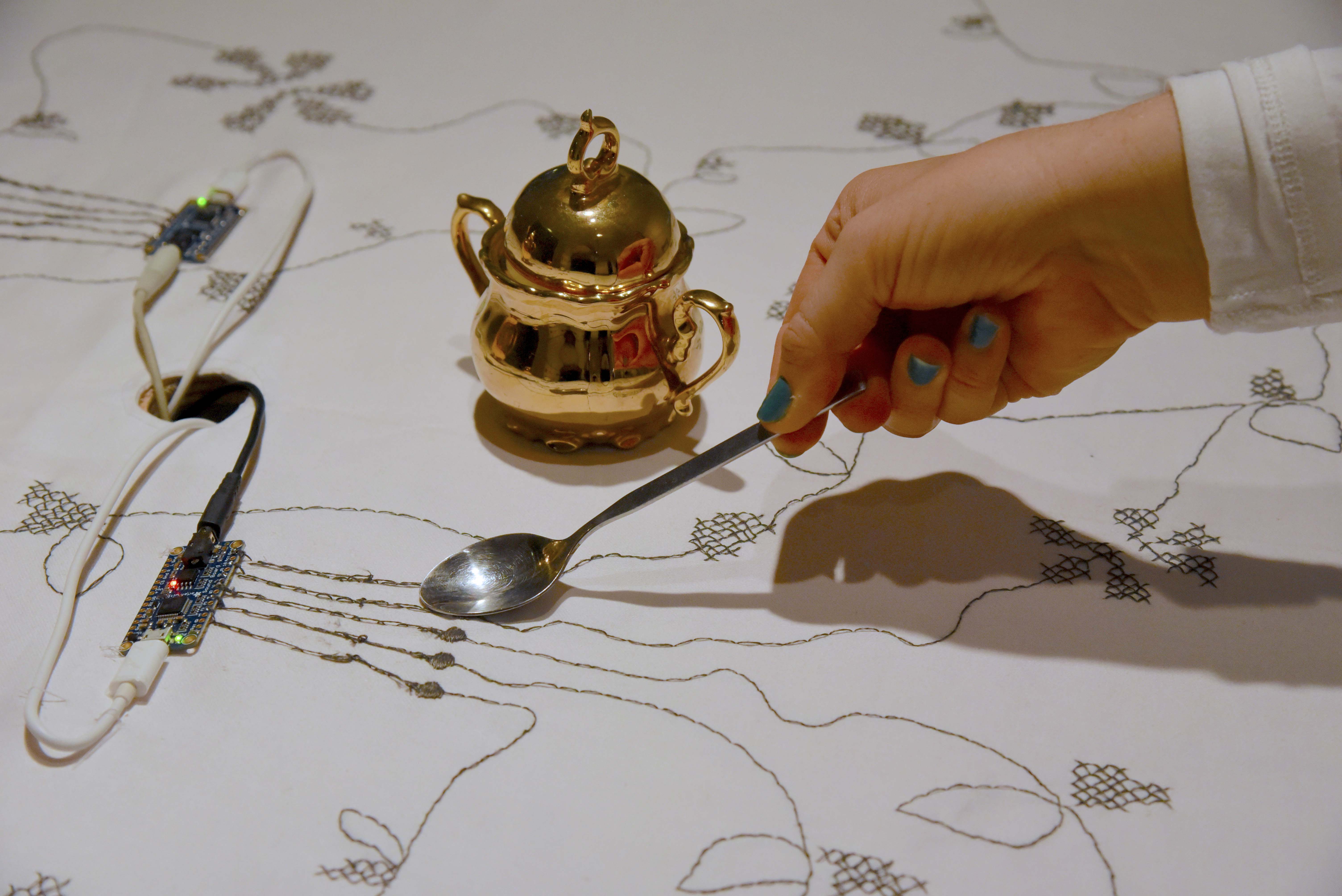
Building on that legacy, we invite you to rethink the women’s coffee table gathering as a circulation of energies and potentialities that we expose through the electric circuit built with ecologically sentient methods and materials, reflecting on the colonial histories and presents of mining, import, consumption, and appreciation of art and hardware. Secrets will be shared, friendships established, and power reclaimed.
